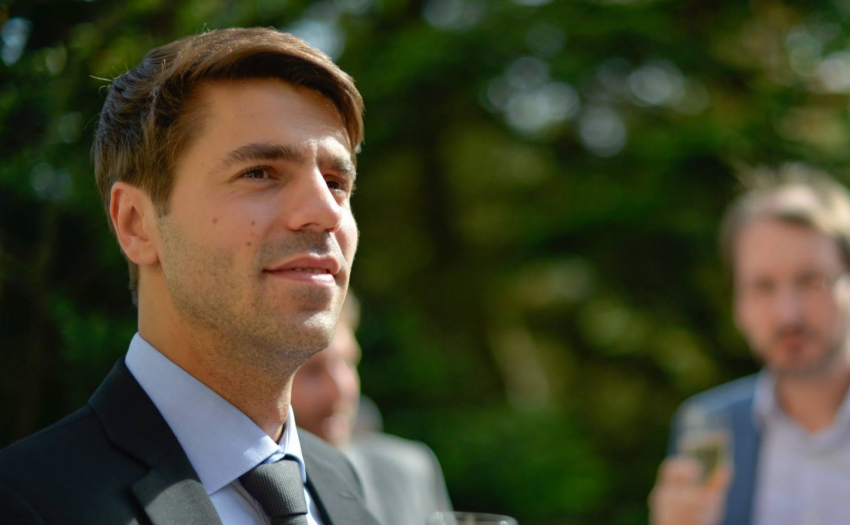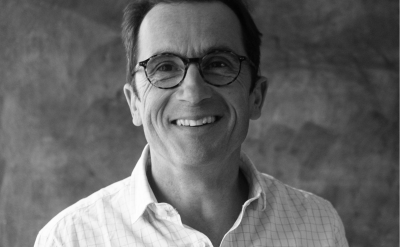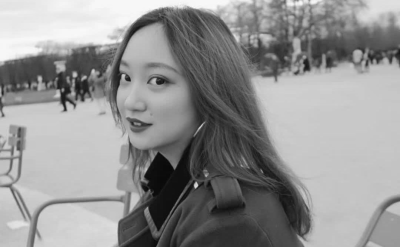News

Sylvain Foucat, SK 2011, Business Intelligence Director @ BBC Global News Limited
After a few years in Singapore, Sylvain Foucat, a graduate of SKEMA’s Class of 2011, is now Business Intelligence Director at BBC Global News Limited. He talks to us about his role and about this prestigious institution’s advertising challenges.
Can you tell us about BBC Global News Limited?
The BBC (British Broadcasting Corporation) is a public service organisation. Its domestic television channels are entirely funded by the UK TV licence fee. BBC Global News Limited, on the other hand, is a separate entity that broadcasts international news and current affairs via the television channel BBC World News and online via BBC.com.
Online, BBC.com represents 90 million unique visitors per month and about one billion page views. As for the TV channel, it is aired in all countries (except those where television is censored!) and reaches more than 400 million households. All in all, the BBC is a gigantic enterprise, with more than 2,000 reporters! The BBC embodies England’s reach around the world.
Most of the content is in English, but we are also broadcast in 28 languages through the World Service sites. Our guiding principle is impartial news coverage, and we are present even in those places where it is difficult to get news that isn’t controlled or manipulated. With the World Service, the editorial teams of the different channels relay the news from the British public service or local news and stories. It has to make sense. For example, for BBC Persian, there is little audience in Iran but we’re reaching the diaspora, which is significant in the United States for example.
We have studios in Singapore, Hong Kong, New York… and correspondents around the world, including in Africa.
Who are your competitors?
The channel has relatively little competition but, in a highly niche market, that actually means the competition is fierce. CNN is our biggest competitor but this network is more focused on the USA and countries where the US has economic interests. In Europe there is Euronews, and Al-Jazeera is losing ground in the Middle East. There is also France 24 to a lesser degree. On the digital front, there is more direct competition (FT, WSJ, Economist, NYT, Euronews, CNN) but it is also more difficult to define since the Google/Facebook duopoly represents a gigantic market share.
What is your role within the company?
My job is to sell advertising around the world while taking into account the BBC’s specific constraints. On radio, no commercial advertising is possible. On television, the number of breaks is rather limited (one ad break every half hour). On the website too, advertising is rather limited.
It’s a non-profit organisation but we still need to have a strategy in place to generate revenue. Our objective: to be profitable and raise funds to develop programmes. The money earned from advertising is reinvested in the BBC’s image, in documentaries, and to raise England’s profile around the world.
We have a dozen offices with sales reps in Singapore, Hong Kong, Japan, Australia, China, India, the USA, London and Paris… We are there as support to help them in dealings with the media agencies. To guide our sales force, it is important for us to have a solid understanding of local markets. You have to identify the right types of clients, the right pricing. We mainly deal with clients who want to advertise in several different countries, not just their domestic markets.
Our objective is to find new partners or new formats on pages while protecting our DNA. We have a very strict policy which aims to prevent, for example, the placing of ads next to tragic news, as this can place brands in a difficult position.
How do you get around this on a news site which often focuses on dramatic news?
We develop what we call “feature sites”, themes: BBC Culture, BBC Future, BBC Travel and BBC Capital. We redirect traffic to this more consensual content. These pages of the website that are more segmented and more focused on lifestyle are very advantageous for advertisers.
Can uncompromising news coverage impede the development of advertising?
Our ethical standards make us appealing to advertisers but of course this also has an impact on our commercial effectiveness and on our competitiveness in a marketplace where our competitors are sometimes less attached to these principles. I often have to juggle with that. Negotiating with a country’s ministry of tourism while talking about the insecurity that reigns there can get a tad complicated!
How does an old lady like the BBC keep up with the digital revolution?
The BBC does have a bit of an old-fashioned image. For the moment we aren’t suffering from the competition of new media like Vice, but we are aware that we need to develop to attract a younger audience. We have some focus groups working on this. And it’s true that Facebook, Google and Amazon are capturing a huge portion of advertising budgets. CNN might have found a solution with its Great Big Story video content in answer to Vice or Buzzfeed. And it’s difficult to be up against national media sites like lefigaro.fr in France, for example. But our audience remains vast. Once again our ethics and values are also an advantage.
Did these values sway you in applying to this company and building a fulfilling career there?
Absolutely. I am proud of this channel’s mission. I was hired by the BBC in Singapore at the end of a fixed-term contract with Lagardère where I learned a lot. In the beginning, I applied for a management control and financial analyst position. I got on really well with my boss and my duties ended up being broader, more cross-functional. Usually you start in London and then continue your career abroad. I was lucky enough to do the reverse. I got to know the company and become proud of it. The BBC has a very British image, but the section where I work is very international; local talents are recruited, resulting in true cultural diversity.
You started in Singapore after graduating from SKEMA, and now you’re in London. Was life abroad particularly appealing to you?
After graduating, I looked for a VIE contract abroad and had a preference for Africa. I wanted to expose myself to other cultures. My wife, who back then was my girlfriend (a SKEMA alumna), found a job in Singapore before me. I turned down some career opportunities and followed her there. We had a natural talent for languages. I think we got there at the right time. It was like a dream; the quality of life was unrivalled. After a year and a half in Asia, I was offered a promotion in London. It was good to be back in Europe, for sure, and London really is a very cosmopolitan city with a great atmosphere. It was also an opportunity to be closer to parents and friends at a time where we were starting our own family.
The hardest thing was the change in standard of living. London is very baby friendly, but it’s not wallet friendly! We might move abroad again later on, why not? We consider ourselves citizens of the world, with the desire to carry France’s values with us wherever we go.
What advice would you give young people entering the job market?
I think you have to follow your instincts, go with your gut and seize opportunities when they present themselves. But it’s also important not to want everything right away! Young people sometimes want to go too fast. You have to look within and figure out what you’re really capable of before accepting a position. To me, it’s important to commit to a company and a salary shouldn’t be the sole motivation.
It’s also important to have a clear vision of your goals and to talk about this with your superiors. Speaking personally, I’m sort of coming to the end of one road; I’m not hiding my ambitions. I’m very transparent with my superiors and they appreciate it. Anyway, if you don’t ask, you don’t get! So you shouldn’t hesitate to speak up.
You only have one life; make the most of it. I work a lot, I deliver the goods, but I’m also flexible with my teams. I can also make time for myself. In short, you have to be ambitious but find the right balance and make your role evolve as your wants change.
Interview by Marie-Pierre Parlange (www.lepetitjournal.com)




